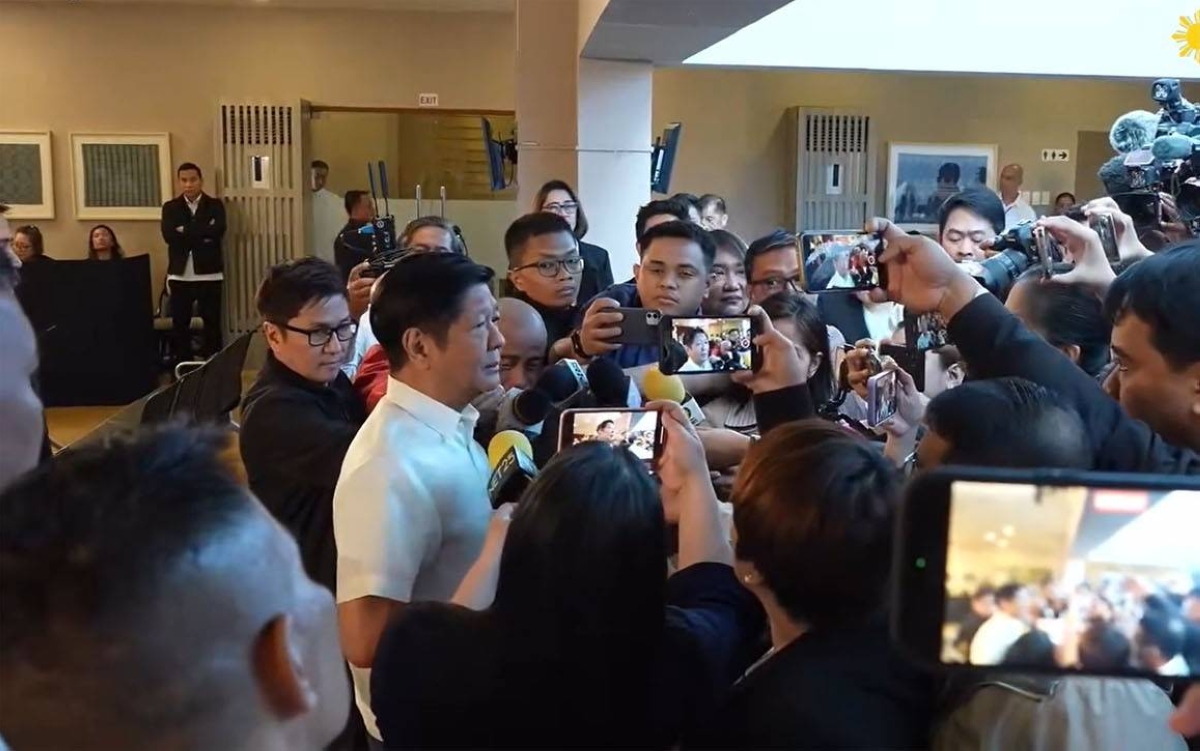President Ferdinand Marcos Jr. of the Philippines has expressed concern over the potential for conflict between the Philippines and China regarding the territorial dispute in the West Philippine Sea (WPS). In an interview with Australian journalist Sarah Ferguson during the Asean-Australia Special Summit in Melbourne, Marcos emphasized the need for Chinese President Xi Jinping to be more responsive in addressing the issue.
According to Marcos, the rising tensions in the region increase the risk of an unintended conflict. He highlighted the importance of de-escalating the situation when rhetoric becomes heated, as any misconceptions or mistakes could lead to a dangerous escalation. The President called for efforts to “lower the temperature down” and find peaceful resolutions to the territorial dispute.
One proposal put forward by Marcos is the establishment of a direct line of communication between Manila and Beijing. He suggested the creation of a hotline between himself and President Xi to facilitate direct dialogue at the highest level. Marcos mentioned that he had previously proposed this during his visit to Beijing in January of the previous year. However, as of now, the direct line has not been established.
Marcos reiterated the Philippine government’s commitment to defending the country’s sovereignty. He emphasized that the nation’s sovereignty is sacred and will not be compromised in any way. The President made it clear that the Philippines will not allow any encroachment upon its maritime rights, asserting that the defense of territorial integrity is not aimed at countering the military power of any country but rather safeguarding its territory.
Marcos also highlighted that the Philippines has successfully resolved territorial conflicts with other countries, such as Malaysia and Vietnam, through peaceful means. The President expressed the importance of reaching arrangements that promote regional peace, stability, and success.
While the territorial dispute in the West Philippine Sea remains unresolved, President Marcos Jr. calls for a diplomatic approach to prevent any potential conflict. He emphasizes the need for open lines of communication between the Philippines and China to facilitate dialogue and prevent misunderstandings. The President’s commitment to defending the country’s sovereignty and pursuing peaceful resolutions underscores the Philippines’ stance in the ongoing territorial row.
It is crucial for both countries to address the issue diplomatically and find common ground to ensure regional stability. The establishment of a direct line of communication between the leaders of the Philippines and China could serve as a valuable tool in resolving the territorial dispute. By engaging in constructive dialogue, both nations can work towards a peaceful resolution that upholds their respective interests while maintaining regional peace and stability.
As the situation in the West Philippine Sea continues to evolve, it is essential for all parties involved to prioritize diplomatic efforts and avoid actions that could further escalate tensions. By adhering to international law and engaging in peaceful negotiations, the Philippines and China can set a positive example for resolving territorial disputes in the region.
In conclusion, President Marcos Jr.’s call for China to address the territorial row in the West Philippine Sea highlights the Philippines’ commitment to defending its sovereignty and seeking peaceful resolutions. The establishment of a direct line of communication between the leaders of both nations could play a crucial role in preventing misunderstandings and de-escalating tensions. By prioritizing diplomacy and dialogue, the Philippines and China have the opportunity to find a mutually beneficial solution that upholds regional peace and stability.







